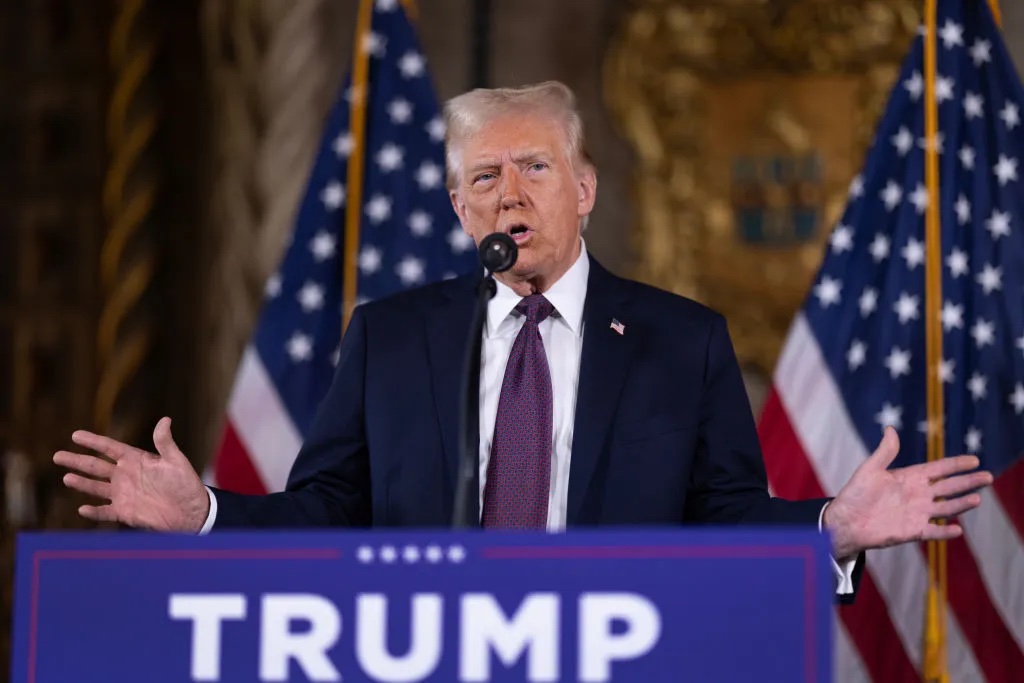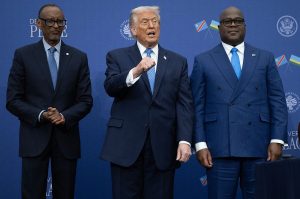As the second Trump term looms in the near distance, it’s become a bit of a cliché to say that “a stopped clock is right twice a day.” Pinko liberal Nats like myself have had to get used to the fact that for all our disagreements with the man on policy and style, there are certain areas where we fundamentally agree.
Most prominently, it was after all Dòmhnall Iain (as his first cousins on Lewis would call him) who first really grasped the systemic challenge posed by China to Western states in his first term. As a member of the Inter Parliamentary Alliance on China (IPAC), it was with a wry smile that we noticed the quiet acquiescence of the Biden administration on that front even as it rolled back other Trump foreign policies.
It will be interesting therefore to see if there is a wider recognition among our political class that behind Trump’s braggadocio on Greenland there lies an implicit rebuke of UK and European security policy. Perhaps one actually tied to the way he understands the China challenge, but also one which — if taken in the right spirit — could help put some flesh on the bones of a debate around defense spending which has been lost down the somewhat blind alley of percentages of GDP.
In so many ways, Trump’s perception of US security is affected by Greenland — where, as ice caps melt and new trade routes open up, China and Russia are jostling for strategic advantage — is as a result of decisions taken by successive governments in Whitehall. Liberal Democrat MP and defense select committee member Mike Martin gave a good précis of the issue here. Quite simply, whereas during the Cold War the Greenland-Iceland-UK (GIUK) GAP was crucial to the UK’s maritime posture, this central plank of UK grand strategy has almost entirely disappeared from our discussion around security. The current Strategic Defense Review being led by former Nato Secretary General Lord Robertson would do well to correct that.
It should do so because the UK’s post-Cold War record in our own backyard has been lamentable. The “peace dividend” of the 90s saw less capability deployed in areas where it was perceived that the new Russian Federation would not pose a threat. This is before we even get to procurement disasters like the canceled Nimrod program, T45 destroyers (ironically unable to function in the Gulf as they were built for colder waters) or an Astute-class submarine fiasco that makes the Scottish government’s ferry woes look like an accounting error.
While I certainly welcomed partial nods to the North Atlantic bedrock of our security when they happened — such as the announcement of the purchase of Poseidon P8 MPAs, or welcome cooperation with neighbors in the UK-led Northern Group formation — there was still no doubt that post-Brexit Britain saw its interests going elsewhere, resulting in the little understood “Indo-Pacific tilt” which was the geo-strategic buzzword from the 2021 integrated review.
And this bring us to the nub of Trump’s comments: a state which is tilting to the Indo-Pacific is by design tilting away from the North Atlantic. Even if you account for the commendable UK response to the Russian invasion of Ukraine, this should not allow us to forget that we have effectively left our back door open to Russian incursions of all sorts for well over a decade now. In other words, Trump has a point.
And while many in the security community have been wise about this for some time — I remember a particular RUSI Whitehall Paper from then Norwegian Defense Attaché John Andreas Olsen on this very topic from as along ago as 2017 — politicians have been very bad at explaining where their priorities lie.
A commitment to the North Atlantic means more than just a percentage spend on GDP: it means reiterating our commitment to the GIUK Gap, and to capabilities like the frigates, maritime patrol aircraft and anti-submarine warfare helicopters that had always been the mainstay of UK defense in our own neighborhood. I’m even left wondering if it has occurred to many across Whitehall that the UK itself may have contributed something to this current stooshie through its own neglect of the GIUK Gap and North Atlantic more generally.
This Labour government is finding it hard in so many ways to get to grips with the maxim that “to lead is to choose”: either choosing badly or falling into the trap of their predecessors in thinking they can quietly opt to have it all and hope nobody notices it’s a fiction. Given their well-documented differences with the incoming Trump White House, Keir Starmer’s government may find that greater focus on the UK’s own backyard — the GIUK Gap — would achieve multiple goals. It would bring Trump’s White House on board and show that Britain can still lead.


























Leave a Reply